THEATRE veteran Lillete Dubey’s new play is an ode to the human spirit and resilience – with a touch of humour and lots of love, as she puts it, exploring the dynamics of relationships during the Covid-19 lockdown.
After receiving rave reviews and standing ovations across India as well as Asia, Dubey will bring Vodka & No Tonic to Britain next month.
Making its UK debut at Beck Theatre in Hayes, the play will run from March 1 to 3, before heading to Glasgow’s Pavilion Theatre on March 7.
Vodka & No Tonic is based on five stories from Indian writer Shobhaa De’s book, Lockdown Liaisons, that explore the shifting dynamics of relationships when everyone was confined at home.
Dubey, a renowned theatre director and popular actress, described how the play came about.
“During lockdown, my friend Shobha De had written Lockdown Liaisons. She told me how all these stories just came to her like a big gush, so she wrote them right at the beginning of the pandemic.
“She asked Ira Dubey (my daughter) and me to do a soft launch on the internet. We chose two stories each and did a soft launch by reading them out.
“We got a very good reaction from people and many suggested converting some of the stories into a play.”
Vodka & No Tonic is produced (under Primetime Theatre Company) and directed by Dubey.
She said, “I decided to take these stories on stage because I felt these are universal and relatable, because we all went through the pandemic issues.”
Lockdown made us pause and rethink our relationships, Dubey said. “People were stuck with each other within the four walls of their homes for months. Some emerged stronger, some cracked under the pressure.
“There were a lot of divorces during the pandemic, as couples realised they couldn’t handle being with each other all the time.” Dubey added, “All these are love stories and are moving and relatable. They also have a humorous element, in typical Shobhaa style.”
De is a well-known columnist in India and is known for her forthright views. It was Dubey’s decision to give the play a different name from the book as she felt Lockdown Liaisons could evoke sad and depressing times and she didn’t want audiences to be reminded of that.
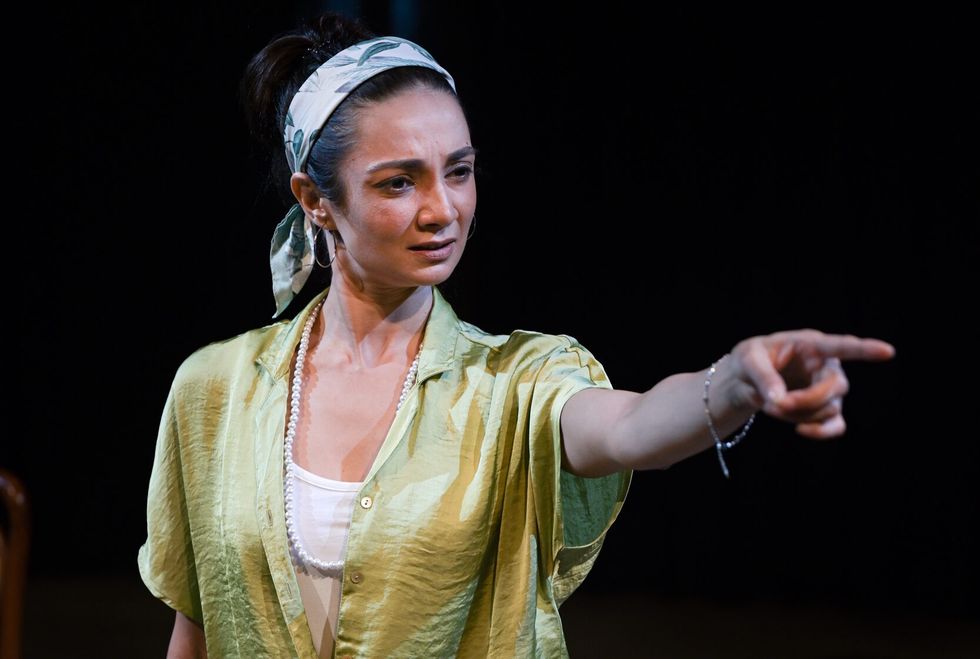
And despite “being on stage for more than 50 years”, Dubey had never done a monologue – so she chose to star in this production.
Vodka & No Tonic also stars Dubey’s daughter, Ira, as well as Joy Sengupta. The crew includes set designer Salim Akhtar, lighting designer Arghya Lahiri and music composer-singer Omkar Patil.
Dubey said, “Everybody in this play is not just good; they are brilliant. It’s like a stripped-down form of theatre – yet in a very intense way.”
The first story, titled Vodka & No Tonic, starring Ira, explores the story of a couple whose relationship implodes and threatens to fall apart.
Another, A Quest Ends, starring Sengupta, is about a couple’s desire for a child and how the pandemic impacted their relationship and their wish to start a family.
Whiff of Eternity, starring Ira, is about a lesbian who has kept it secret from her parents. Just before the lockdown, she returns home and is stuck with her family.
The fourth one, Leaving, starring Sengupta, is about a migrant worker in Mumbai who wants to go back to his home.
India’s nationwide lockdown in March 2020 led to a mass exodus of migrant workers who found themselves stranded overnight. Thousands of daily wage labourers were seen embarking on long and perilous journeys to return home. Some travelled by foot or bicycle, while others hitched a ride on trucks, vans, or whatever transport they came across.
Dubey said, “In spite of it being a poignant story, this one has elements of humour. The man is also in love with a beautiful young widow who is a construction worker. At the heart of it is this love story that he doesn’t want to leave, but who can’t stay since he is not earning anything in the city.”
The fifth and final monologue is Lockdown Funeral, that stars Dubey herself.
“It is about a woman who is from the upper class, she has great lineage. But, 10 to 12 years into an otherwise perfect marriage, her husband suddenly falls in love with a woman who is sort of the opposite of what she is – a loud, middle-class, woman from a different world.
“My character never gets over this. She then finds out her husband has died and she had to attend his funeral – where she comes across this woman for the first time,” Dubey said.
All five stories are emotional, yet funny, she added.
Dubey began her acting career in theatre and, in 1991, co-founded The Primetime Theatre Company with an aim of promoting original Indian writing. Its productions have since travelled across the world, with performances at Bloomsbury Theatre in London and Tribecca in New York.
One of its most notable productions, Dance Like a Man, is the longestrunning Indian play in English, having completed more than 650 shows across the world, including a two-week off-Broadway run.
Dubey told Eastern Eye, “My sole reason for setting up a company was to work with original Indian writing and to take that work across the world.
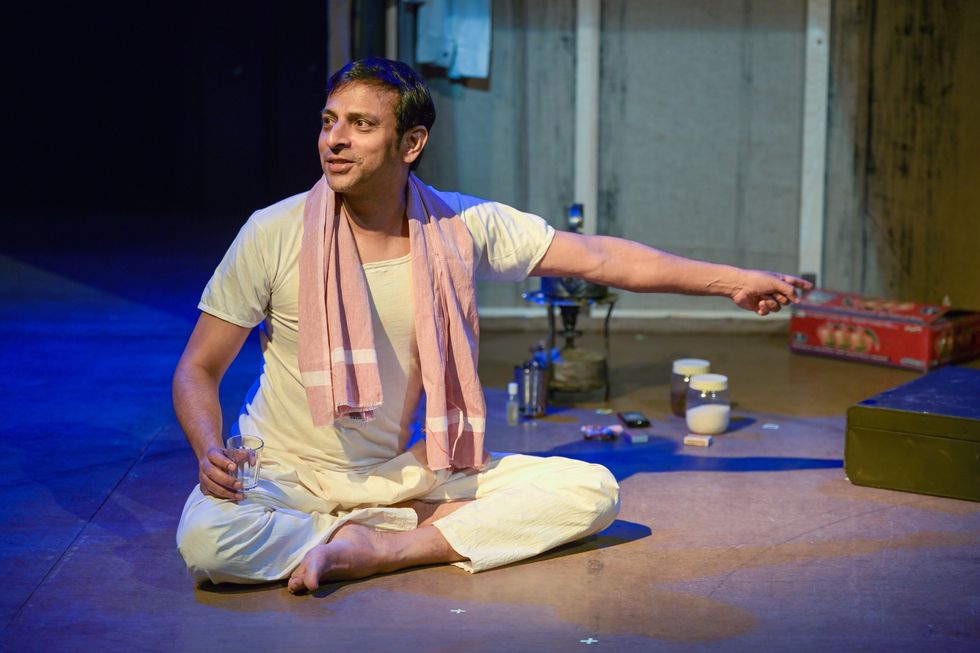
“Recently, I was very honoured and touched when Harvard Business School told me they are doing a sort of programme about people who have left a legacy in their respective fields. They picked me since I have worked with original Indian writing.”
However, unlike other countries, theatre companies in India don’t get any grants and must run on their own, she pointed out.
Dubey is also thrilled about her other recently launched play, Jaya, a rock musical version of the Hindu epic, the Mahabharata.
“It’s huge, with 25 people in the cast. It has Indian dance art forms like Kalaripaittu, Chhao, a little bit of Kathak and elements of flute, but it is still a rock musical. People have never seen the Mahabharata like this, I can assure you that,” she said.
Audiences will also recognise Dubey from her work in films, most notably Mira Nair’s Monsoon Wedding, where she plays the mother of the bride.
Dubey’s foray into films was with Zubeidaa – at 47, an age when most actresses were “wrapping up and going home”.
Over the years, she has worked with “some fabulous actors, from Dame Maggie Smith and Richard Gere to (Indian superstars) Amitabh Bachchan and Shah Rukh Khan”. Movies and theatre have been “parallel activities” for her, she said.
Dubey has been in more than 50 movies, 30 television shows and dozens of web series. She will also be seen in four web series soon in significant roles, she said.
“I love all kinds of work. I am very grateful for all that, but my heart, love and soul is theatre,” she said.
Vodka & No Tonic will run at Beck Theatre, Hayes from March 1, Friday, to March 3, Sunday. It will be performed at Pavilion Theatre, Glasgow on March 7, Thursday
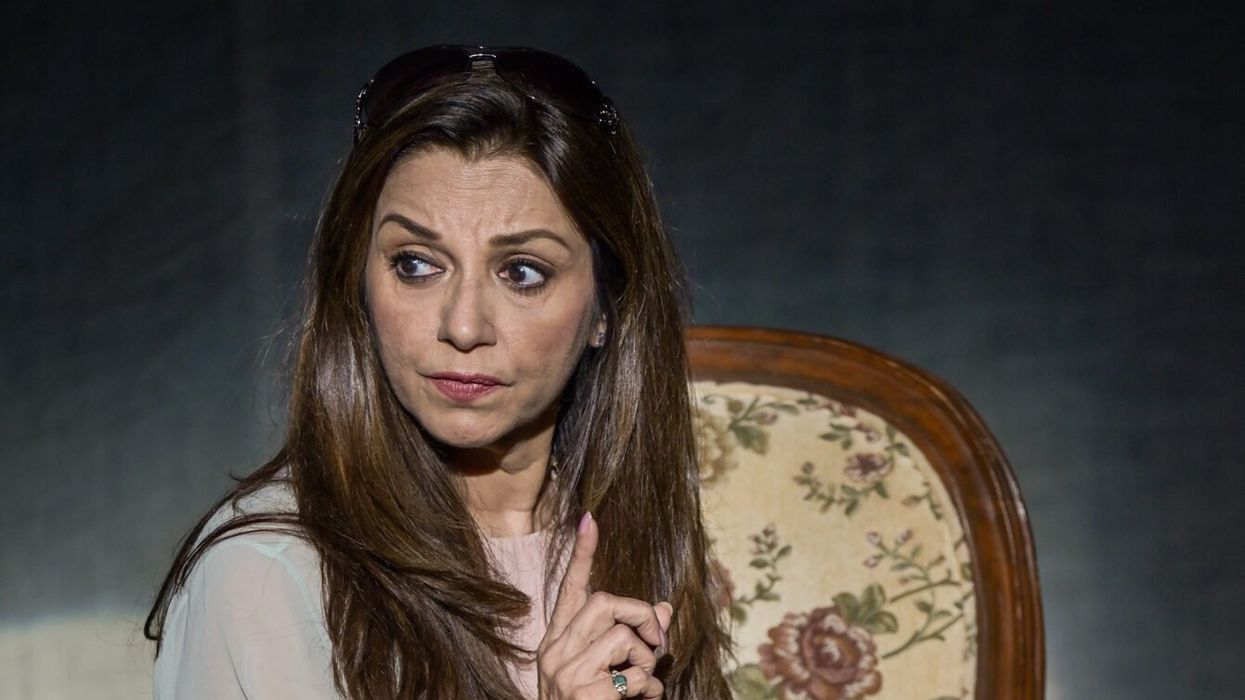






 Clive meeting Mir Jafar after the Battle of Plassey 1757
Clive meeting Mir Jafar after the Battle of Plassey 1757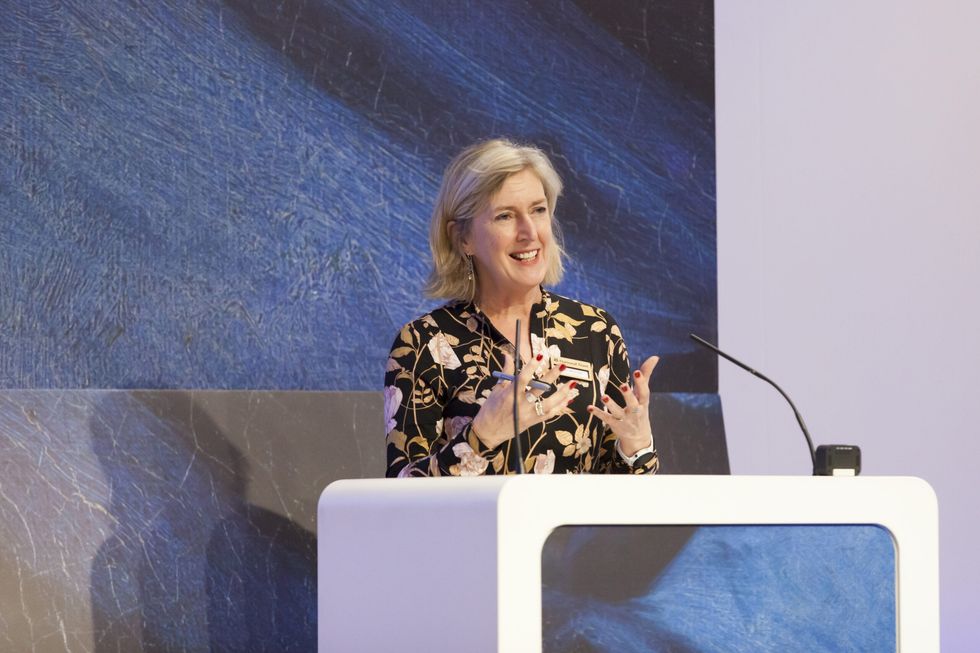 National Trust director general Hilary McGrady
National Trust director general Hilary McGrady 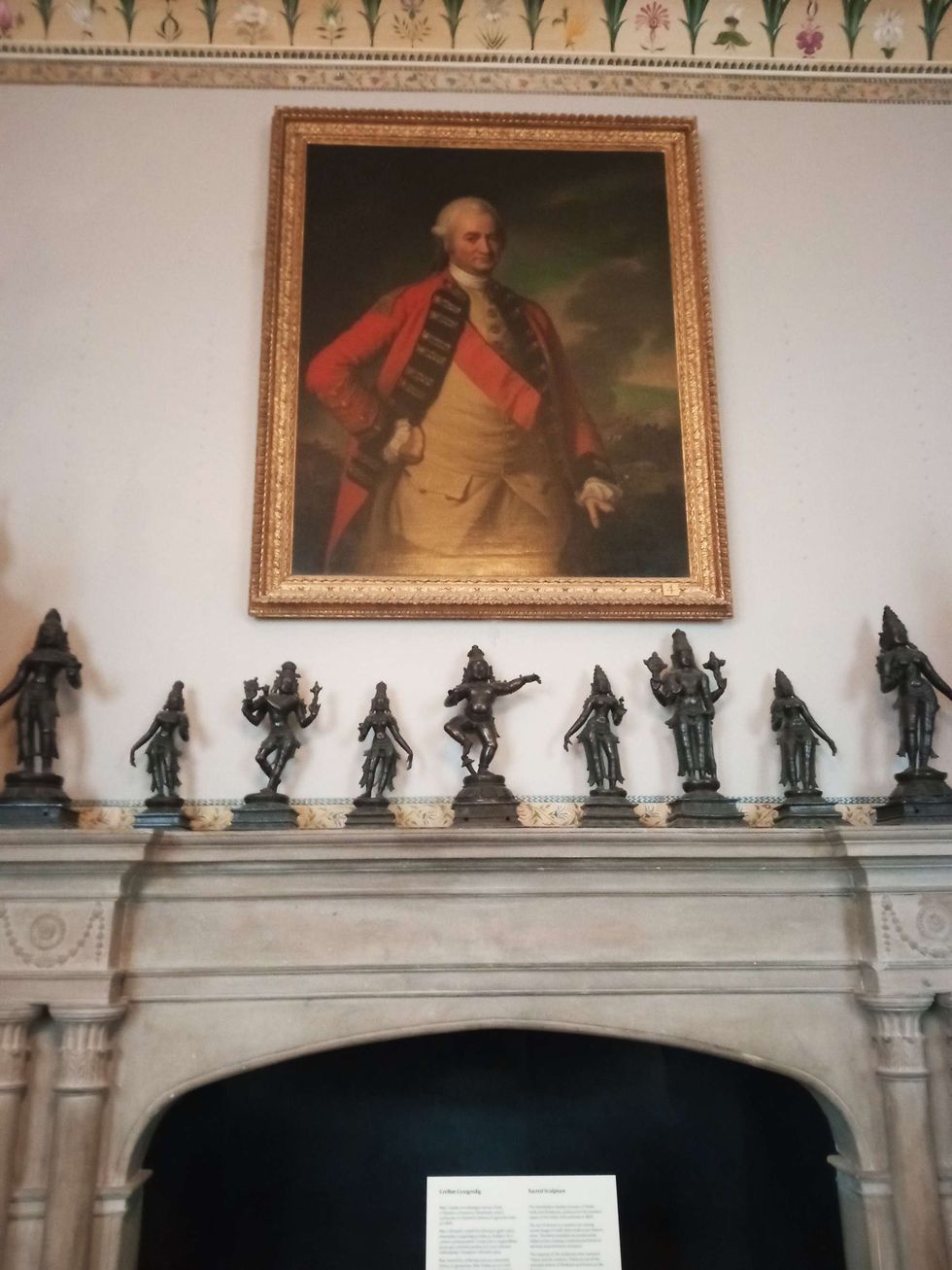 Powis Castle photo of four Clive dominates Hindu Gods
Powis Castle photo of four Clive dominates Hindu Gods  Clive of India at Foreign Office entrance
Clive of India at Foreign Office entrance 





